Vegan Cosmetics Market Expands with Plant-Based Innovations Across Asia
flareAI
Quick Listen:
In the sweltering heat of a Mumbai workshop, an entrepreneur blends moringa oil with coconut derivatives, her fingers tracing the contours of a skincare revolution. This isn't mere artisanal crafting; it's the vanguard of Asia's vegan beauty surge, where time-honored botanicals fuse with rigorous ethical standards, propelling plant-derived potions past their synthetic counterparts in sales charts from Jakarta to Jeddah. As discerning buyers across the continent insist on cosmetics that enhance appearance while honoring planetary and animal welfare, the Asian market is erupting in verdant ingenuity.
Many women feel trapped by makeup that hides flaws but risks irritation and hidden toxins. This daily choice weighs heavily, dimming confidence over time. Liht Organics invites you to embrace beauty differently. With up to 90% USDA-certified organic ingredients, our vegan, cruelty-free products deliver vibrant color and gentle care, letting you glow with confidence, knowing your skin is nurtured, not compromised. Shop Now!
A New Chapter in Asia's Beauty Evolution
Envision a sector not merely expanding but surging forward with unyielding momentum. The Asia-Pacific vegan cosmetics arena, propelled by environmentally aware purchasers and astute policy frameworks, stands poised to achieve USD 3.48 billion in 2022 revenue, escalating at a robust 7.4% compound annual growth rate through 2030. This trajectory underscores a profound pivot, intertwining indigenous legacies with forward-thinking advancements India's venerable Ayurvedic practices intertwining with Singapore's biotechnological prowess, all enveloped in "cruelty-free" assurances that guarantee zero animal involvement.
At its core, this proliferation stems from human priorities. Across the region, millennials and Generation Z are forsaking lab-made lotions for those harvested from regenerative fields, motivated by ecological concerns and an unquenchable thirst for authenticity. Regulatory bodies are amplifying this momentum: India's Food Safety and Standards Authority introduced vegan certification protocols in 2022, streamlining global trade pathways, while Singapore's Enterprise Singapore allocates funding to ventures pioneering animal-free technologies. In Malaysia, the halal-vegan synergy thrives, with formulations seamlessly integrating into faith-aligned certifications, harmonizing spiritual tenets with compassionate consumption.
This blend of heritage and horizon defines the narrative. India's Ayurvedic staples turmeric poultices and neem exfoliants undergo vegan refinement, excising any animal traces to captivate a wider demographic. In the UAE, affluent connoisseurs embrace arid-adapted floral infusions that exude extravagance minus moral compromise. Far from ephemeral hype, this represents a seismic shift, positioning beauty vessels as conduits for ecological stewardship. Globally, the vegan cosmetics domain, valued at USD 19.21 billion in 2024, anticipates reaching USD 32.56 billion by 2032 at a 6.85% CAGR, with Europe holding a commanding 33.84% share that year, yet Asia's velocity signals emerging dominance.
Consumer ethos fuels this fire. The ascent of veganism worldwide, rooted in opposition to animal exploitation, compels brands to innovate sans beastly byproducts, whether naturally or synthetically derived. In Asia, this manifests as a cultural renaissance, where sustainability scrutiny over raw material procurement and packaging detritus propels market vitality, as evidenced by the Asia-Pacific projection of 6.6% CAGR from 2024 to 2031, with China leading at USD 1.89 billion by 2031.
Emerging Trends and Regional Developments
Focus on India, where the heartbeat of this phenomenon throbs most vigorously. Emerging enterprises such as Juicy Chemistry and Forest Essentials are mass-producing Ayurvedic vegan collections that vanish from retailers, bolstered by FSSAI's 2022 mandates that authenticated "vegan" designations and unlocked export avenues. E-tailers like Nykaa and Purplle dedicate expansive aisles to these verdant treasures, transforming digital baskets into sustainability sanctuaries. Small wonder: Indian patrons, immersed in wellness philosophies, spearhead elixirs that mend epidermis and spirit alike. Nationally, India eyes a 7.4% CAGR through 2031, outpacing regional peers and underscoring its pivotal role.
Shift to Singapore, the luminous epicenter of bioengineered aesthetics, and the tale sharpens. Laboratories here cultivate vegan collagen via enzymatic processes, eschewing animal origins, with pioneers like Allozymes advancing biocatalytic frontiers for pristine compounds. Though Shiseido collaborations iterate annually, the ethos remains synergistic: state-sponsored stimuli via Enterprise Singapore entice innovators to exchange artificials for cultivated flora, championing endurance. This yields sophisticated luminescence for every application. Singapore's grants not only incubate such feats but also align with broader imperatives, mirroring the global push where vegan consumerism averse to cruelty drives the sector from USD 18.20 billion in 2024 toward USD 33.39 billion by 2034 at 6.26% CAGR.
Venture westward to Malaysia and Saudi Arabia, realms where halal principles converge with vegan imperatives in elegant accord. Malaysia's Department of Islamic Development (JAKIM) endorses vegan wares beneath its halal canopy, provided they evade proscribed elements sans porcine, alcohol, or faunal remnants. Saudi Arabia's Saudi Food and Drug Authority mirrors this, validating "vegan" markers for devoid-of-animal goods, facilitating outflows tailored to pious yet particular clientele. The outcome? A torrent of halal-vegan amalgams inundating emporia from Kuala Lumpur to Riyadh, melding devotion with botanical vigor. This fusion amplifies accessibility, as Asia-Pacific's skincare dominance claiming 34.01% share in 2021 propels the overall market from USD 15.17 billion in 2021 to USD 26.16 billion by 2030 at 6.1% CAGR, with specialty outlets holding 35.7% distribution sway.
Amid Dubai's opulence, the UAE's sheen adopts emerald hues. Boutiques like Project bYouty and Powder Beauty curate elite consignments from Aesop to Tata Harper, all vegan and murmuring eco-integrity. Youthful expatriates and natives propel this tide, spurred by the Dubai Chamber's 2024 blueprint for verdant paradigms emphasizing botanical bounty from sustenance to salves. It's sumptuousness infused with rectitude, garnished with arid petal essences. The UAE's trajectory ties into regional currents, where environmental accountability targeting sourcing and waste bolsters expansion, as China exemplifies with USD 852.5 million in 2022 revenue ballooning to USD 1.46 billion by 2030 at 7% CAGR, skincare leading while hair care accelerates.
Overlook not the pillars: Australia and the United States serve as innovation forges nourishing this fervor. Down under, labels like Endota and Sukin extract indigenous marvels Kakadu plum for ascorbic surges, tea tree for germicidal punch and dispatch to Asian ateliers. U.S. trailblazers collaborate with Indian and Singaporean outposts for joint fabrication, safeguarding moral and streamlined logistics. This forms a vast oceanic conduit of unadulterated essence, supporting Asia's ascent as the swiftest regional contender at 7.4% CAGR, with India poised for the zenithal surge.
Case Studies: Brand Success and Innovation
Consider Liht Organics from Singapore a marque redefining ingestible aesthetics. Their vegan compositions, brimming with coconut and moringa lipids, cater to wellness zealots unyielding on radiance. "Edible-grade" implies theoretical palatability for pigments (refrain from tasting), captivating Southeast Asia profoundly. Presently venturing into UAE and India through virtual commerce and green alliances, Liht exemplifies that purity can tantalize palates and complexions alike. Such triumphs echo the skincare hegemony in China, where botanicals reign supreme.
In India, Daughter Earth epitomizes the alchemy of empiricism and antiquity. Merging clinically vetted herbs with ancestral acumen, they forge innocuous dermatological arrays dispatched to Australia and Singapore via ethical digital portals. Their multifunctional tints for lips and cheeks wholly vegan, laden with maximal herbal potency evaporate from cyber storefronts, illustrating how lineage thrives in contemporary commerce. This mirrors hair care's burgeoning trajectory across Asia-Pacific, the segment heralded for briskest proliferation.
In the UAE, Glow Theory emerges as a native vanguard in unisex, vegan dermatology. Sourcing esoteric actives from indigenous sands, they assemble arsenals as equitable as inventive envision unguents pacifying solar exposure devoid of vivisection. It's autochthonous splendor scaling internationally, drop by dune-derived droplet. Brands like these, alongside globals such as L'Oréal and Shiseido, amplify the chorus, with color cosmetics rounding out the triad alongside skincare and hair in driving revenues.
Challenges in Scaling Vegan Beauty Across Asia
Yet, the voyage isn't devoid of tempests nor flawless fusions. Procuring components persists as a vexation, certification variances sprawling chaotically across frontiers. A nation's "vegan" verity morphs into ambiguity elsewhere, courtesy fragmented import-export edicts. Moreover, expenditure looms: innovating vegetative agents exceeds synthetic extrusion, compressing leeway for nascent entities. Europe's 39% global revenue primacy in 2024, per Precedence Research, spotlights standardization's edge, a luxury Asia grapples to attain.
Lurking is greenwashing, that insidious specter donning "organic" facades sans substantiation. Patrons sharpen scrutiny, insisting on validations from PETA or Vegan Society to pierce veils. The bureaucratic labyrinth? India's annotation eccentricities collide with UAE's ingress rigors and Malaysia's halal barricades, morphing conduits into gauntlets. Nonetheless, these abrasions temper resilient, forthright contenders, fortifying the sector's credibility amid a global ethos scorning cruelty.
Market Opportunities and Business Impact
Invert the lens, and prospects gleam brilliantly. Digital behemoths Shopee, Lazada, Amazon.sg turbocharge transnational transactions, enabling a Singaporean essence to alight in Riyadh routines instantaneously. Indigenous icons flourish: India's moringa orchards, Australia's macadamia stands, Malaysia's non-palm proxies all basking in acclaim and remuneration. This valorization aligns with sustainability mandates, where packaging refuse and ethical sourcing ignite investor zeal.
Colossi encroach: Unilever, L'Oréal, Shiseido escalate vegan assortments in Asia, pursuing fiduciary green covenants. Capital influx? Private equity and venture infusions for Singaporean and Indian vegan aesthetics burgeoned markedly in 2023, echoing consumer vertical surges. It's a bountiful terrain for visionaries with verdant vision, as Japan charts a steady 6% CAGR to 2031, complementing the mosaic.
Expert Insights and Future Outlook
Gazing forward, the Asia Pacific Vegan Society alongside India's Beauty & Hygiene Association augur sturdy ascension, CAGRs circling 7% into the 2030s, harmonizing with Grandview's 7.4% regional forecast. Artificial intelligence beckons, accelerating assay validations in Singapore suites. Bio-fermented flora supplant archaic softeners, as UAE and Malaysia pioneer rechargeable casings curtailing refuse. Color cosmetics, per 2021 shares, will diversify this palette.
"Vegan beauty in Asia isn't just a lifestyle it's a technological evolution merging ethics, efficacy, and innovation," observes Dr. Amrita Kaul, cosmetic savant at Singapore's Institute of Sustainability & Technology. Precisely. This reconfigures aesthetics, where algorithms and aloes distill destiny, propelled by a 36.81% European 2021 share yielding to Asia's inexorable rise.
Toward a Conscious Beauty Ecosystem
As twilight cloaks the Persian Gulf or dawn gilds the Ganges, Asia's vegan cosmetics torrent surges intentionally. From Singapore's aseptic ateliers to Dubai's vibrant souks, it's a weave of ancestry revitalized via ingenuity and steadfast morality. India and Singapore ignite concepts; UAE and Malaysia refine to refinement; Australia and U.S. reinforce frameworks. Within this mindful matrix, each gloss glide endorses benevolence one herb at a time. The efflorescence endures, beckoning collective luminescence in verdure.
Frequently Asked Questions
How fast is the vegan cosmetics market growing in Asia-Pacific?
The Asia-Pacific vegan cosmetics market is experiencing robust growth, with projections showing a 7.4% compound annual growth rate through 2030, reaching significant revenue milestones. India is leading this surge with an expected 7.4% CAGR through 2031, while China is projected to reach USD 1.89 billion by 2031. This makes Asia one of the fastest-growing regions globally for plant-based beauty products, driven by environmentally conscious consumers and supportive regulatory frameworks.
What are the main challenges facing vegan beauty brands in Asia?
Vegan cosmetics brands in Asia face several key obstacles, including fragmented certification standards that vary across countries, making "vegan" definitions inconsistent across borders. Higher production costs for plant-based ingredients compared to synthetic alternatives create financial pressure, especially for emerging companies. Additionally, greenwashing concerns and complex regulatory requirements from India's labeling protocols to Malaysia's halal certifications and UAE import restrictions complicate market entry and expansion efforts.
How are halal and vegan certifications working together in Asian markets?
In Malaysia and Saudi Arabia, halal and vegan principles are converging harmoniously to create dual-certified products that appeal to faith-conscious consumers. Malaysia's JAKIM and Saudi Arabia's Food and Drug Authority validate vegan products under halal certifications, provided they exclude prohibited ingredients like pork, alcohol, and all animal derivatives. This strategic fusion has created a thriving market of halal-vegan cosmetics flowing from Kuala Lumpur to Riyadh, combining religious adherence with botanical innovation to serve both devout and ethically-minded consumers.
Disclaimer: The above helpful resources content contains personal opinions and experiences. The information provided is for general knowledge and does not constitute professional advice.
You may also be interested in: Pregnancy-Safe Makeup: What You Need to Know Before You Buy
Many women feel trapped by makeup that hides flaws but risks irritation and hidden toxins. This daily choice weighs heavily, dimming confidence over time. Liht Organics invites you to embrace beauty differently. With up to 90% USDA-certified organic ingredients, our vegan, cruelty-free products deliver vibrant color and gentle care, letting you glow with confidence, knowing your skin is nurtured, not compromised. Shop Now!
Powered by flareAI.co
Share
You May Also Like
-
Discovering Self-Love Through Clean Beauty: A Guide to Nurturing Your Inner and Outer Self
In the journey of self-love, every action, thought, and choice we make towards ourselves can be a powerful affirmatio...
-

The Science Behind Organic Makeup and Pregnancy: A Gentle Choice for Moms-to-Be
wp:paragraph Pregnancy is a wonderful and exciting journey that comes with added responsibilities of ensuring the ...
-
Liht Organics Black Friday: Enhance Your Beauty Routine with Vegan, Organic, and Natural Essentials!
As the holiday season approaches, there’s a sparkle in the air, and we at Liht Organics are thrilled to add a touch o...
-

Organic Makeup That Heals As It Conceals
Liht Organics Empowers Women With Only The Best For Their Beauty NeedsLiht Organics combines the best of both worlds:...
-
![[FEATURE] Liht Organics to debut at TFWA Asia Pacific show](//lihtorganics.com/cdn/shop/articles/1_1.png?v=1759328400&width=170)
[FEATURE] Liht Organics to debut at TFWA Asia Pacific show
‘Organic makeup that’s safe enough to eat’ — Liht Organics to debut at TFWA Asia Pacific show by Hannah Tan | 24 Apri...
-
![[FEATURE] The Singapore-based organic makeup brand is a first-time exhibitor at this year’s TFWA Asia Pacific Exhibition in Singapore in May 2025](//lihtorganics.com/cdn/shop/articles/2_1.png?v=1759328386&width=170)
[FEATURE] The Singapore-based organic makeup brand is a first-time exhibitor at this year’s TFWA Asia Pacific Exhibition in Singapore in May 2025
TFWA Asia Pacific preview: Liht Organics targets expansion in travel retail By DFNI Staff Writer The Singapore-bas...
-
![[FEATURE] Travel Retail Awards 2025 finalists - Best Make-up Product Color-Intense Liquid Lipstick – Liht Organics](//lihtorganics.com/cdn/shop/articles/4_e2f54f0f-fcd1-46e7-9990-fc9d29e35131.png?v=1759328382&width=170)
[FEATURE] Travel Retail Awards 2025 finalists - Best Make-up Product Color-Intense Liquid Lipstick – Liht Organics
Revealed: Travel Retail Awards 2025 finalists By Trbusiness Editor | Wednesday, 23 July 2025 15:21 TRBusiness is th...
-
![[FEATURE] Liht Organics targets expansion in travel retail](//lihtorganics.com/cdn/shop/articles/3_1.png?v=1759328346&width=170)
[FEATURE] Liht Organics targets expansion in travel retail
Organic makeup that’s safe enough to eat: Liht Organics targets expansion in travel retail By Laura Shirk Liht Organ...
-

[FEATURE] Gulf News: TikTok’s strawberry girl makeup trend: How to achieve that rosy glow inspired by Hailey Bieber
Berry, berry, strawberry, love strawberry, like BTS’s J-Hope, the band’s strawberry enthusiast once said. If only we ...
-

[FEATURE] Gulf Business Magazine : Liht-ing it up
Our founder, Nerissa Low was interviewed by Gulf Business, where she discussed her experience launching Liht, an orga...
-

[FEATURE] Daily Vanity: 11 local beauty brands owned by women – you’d be surprised how many of them started in their kitchens!
When we give a shout-out to homegrown beauty businesses, we aren’t just doing it for the sake of supporting local. Th...
-

[FEATURE] Entrepreneur ME : UAE-Based Liht Organics' Nerissa Low On Crafting An Organic Makeup Brand For The Skin-Conscious Consumer
As is the case with the origin stories of so many startups out there, Liht Organics came into being after its founder...
-
Mother, Baby & Child Editor’s Pick: Liht Organics Lights the Way
Excited to be the Mother, Baby & Child’s ‘Editors pick’ for their choice of Beauty brand.The article outlined the...
-

[FEATURE] EmiratesWoman - 8 Fabulous things to do in Dubai this weekend
by SARAH JOSEPHJANUARY 20, 2023Try the UAE’s first virtual reality makeup podium The popular VR-backed makeup exper...
-

Nerissa Low of Liht Organics On The Self-Care Routines & Practices Of Busy Entrepreneurs and Business Leaders
By Maria Angelova, CEO of Rebellious Intl.Date: 4 January, 2023Nerissa Low of Liht Organics On The Self-Care Routines...
-

Liht Organics: Meet the beauty brand that has caught the eye of the Royal Family of Bahrain
By Crystal Lee Digital Editor28 May 2021The world of clean beauty is, ironically, rather murky.That’s because the ter...
-

The latest luxury makeup and skincare drops, including serums, concealers, moisturisers and more
Allisa Noraini21 May, 2021It’s fine to splurge in the name of beauty. This new range of makeup and skincare drops are...
-

These SG Beauty Bosses Are Conquering The World Despite The Pandemic
First Singapore, then the US, China, Germany, Dubai, UK, South Korea, Malaysia, Hong Kong, Thailand, Australia… By...
-

Nerissa Low, Founder at Liht Organics
Written by Callum LaingPosted on December 26, 2020 10 min readNerissa Created Organic Makeup That Actually Improve...
-

Liht Organics – Makeup That Makes You
At Liht Organics, our mission is simple – to provide women (and men) with a safe experience when it comes to beauty s...
-

Why Should We Use Organic Makeup?
We cannot deny that cosmetics is one of our beauty essential item – it enhances our looks and conceals our flaws. Man...
-

Organic makeup and why your skin will love it: Liht Organics founder
By Jolene,July 27, 2020 |7 mins readOrganic make up in Singapore is a trend that is fast-catching on here as we becom...
-

[FEATURE] DC EDIT – Makeup & Confidence: Talking Self-love With Liht Organics’ Founder Nerissa Low
Makeup and confidence — the long, drawn-out fight that many of us have grappled with personally. I’m sure I’m not the...
-

[FEATURE] THE FEMALE CULTURE – I TRIED LIHT ORGANICS AND THIS IS HOW IT WENT
I’m a huge fan of makeup and I love testing out new products so I was pretty excited to get my hands on Liht Organics...
-

[FEATURE] SINGAPORE MOTHERHOOD – The Best Organic and Natural Skincare and Makeup for Pregnant and Breastfeeding Mums in Singapore
Pregnancy is a hormone-volatile period for women. One place where this makes itself seen and felt is on the skin. Som...
-

[FEATURE] AFTER CLINIC HOURS – 21 Back to Beauty Deals in Singapore (2020)
With spas and salons shuttered island wide for two months, I never thought I’d be this desperate for a good old’ Swed...
-

[FEATURE] KUL AL USRA MAGAZINE JUNE 2020
Choosing Pinks & Oranges this summer!Featured: Moisture Burst Lip Glaze in Pink Cupcake.
-
[FEATURE] Award-winning Organic Makeup Brand Liht Organics Gives Back to the Community & Environment During COVID-19
Singapore’s First Organic Makeup Brand with 100% Natural Makeup That Is Safe Enough to Eat Liht Organics promises org...
-

[FEATURE] COSMETICS DESIGN ASIA – COVID-19 ‘WAKE-UP CALL’: SINGAPORE’S LIHT ORGANICS SEES GLOBAL POTENTIAL AMID CLEAN BEAUTY CLAMOUR
Original article at: https://www.cosmeticsdesign-asia.com/Article/2020/06/26/Singapore-s-Liht-Organics-sees-globa...
-

[FEATURE] THE LIFESTYLE COLLECTIVE – BEAUTY SHOULD NEVER BE CRUEL
Date: June 24, 2020Author: Kristen Chen Liht (pronounced as light) Organics is a Singaporean organic makeup brand t...
-

[FEATURE] NÜYOU – 7 ONLINE PLATFORMS TO SHOP FOR CLEAN BEAUTY PRODUCTS
纯净美容(Clean Beauty)的美肤概念,再近几年来越来越受欢迎。随着消费者“爱自己”的美容意识逐步提升,对于用在脸上的所有物品、成分更为关注和讲究。以广义来讲,纯净美容主张使用“干净”成分和无毒配方,让肌肤的可能性损伤减到最小...
-

[FEATURE] COSMOPOLITAN MIDDLE EAST – 3 BENEFITS OF SWITCHING TO ORGANIC BEAUTY PRODUCTS THIS RAMADAN
By Cosmo – May 08, 2020Nerissa Low, founder of Liht Organics, shares the ultimate benefits of going organic this mont...
-

Nerissa Low of Liht Organics: “Seeing Light at the End of the Tunnel; 5 Reasons To Be Hopeful During this Corona Crisis”
Ely Weinschneider, Psy.D.May 8 · 9 min read …It shows us that everyone- whether we are rich or poor, regardless...
-

[FEATURE] AL MARA MAGAZINE APRIL 2020
-

[FEATURE] RetailME April 2020 – Liht Organics Stays Firm On Strengthening GCC Presence
-

[FEATURE] EMARAT AL YOUM NEWSPAPER – 27 MARCH 2020
English Translation:In spring and summer days, women love to have very light makeup in terms of color and texture, ...
-

[ARTICLE] WKND Magazine March 2020 – Know Your Organic Makeup
-

[FEATURE] AVIAMOST DUBAI – March/April 2020
English Translation:Lipstick with organic flowers. Thanks to the rich complex of natural ingredients, the lipstick...
-

[FEATURE] RUSSIAN EMIRATES (MAR/APR ISSUE)
Russian Emirates is a luxury lifestyle and fashion magazine covering information about the UAE, fashion, beauty, j...
-

[FEATURE] – KUL AL USRA MAGAZINE MARCH 2020
GET THE LOOK!
-

[FEATURE] IMAGES Retail ME – Liht Organics Announces GCC-Wide Expansion
Rupkatha Bhowmick Mar 10, 2020 The plan is to reach 75 Liht Organics retail touchpoints by June-July 2020 and touch...
-

[FEATURE] BABY & CHILD SPRING 2020 – NATURAL BEAUTIES
-

[FEATURE] AWQAT DUBAI – Liht Organics: The First Premium Organic Makeup Brand
ENGLISH TRANSLATION:Liht Organics – The First Premium Organic Makeup Brand Liht Organics, a premium organic beauty ...
-

[FEATURE] FRIDAY MAGAZINE – THE RETRO EYELINER LOOK
-

[FEATURE] MOTHER BABY & CHILD – VANITY ESSENTIALS – THE BEAUTY EDIT
-

[FEATURE] Masala! Magazine February/March 2020 Issue – Beauty Debut: Liht Organics
-

[Feature] – TimeOut Singapore – The Best Local Beauty and Skincare Brands In Singapore
For full article, click here.
-

[FEATURE] KUL AL USRA MAGAZINE – LIHT UP YOUR WORLD WITH LIHT ORGANICS
[ENGLISH TRANSLATION]Liht Up Your World With Liht OrganicsThe First Premium Organic Makeup Brand To Debut In The Mi...
-

[FEATURE] SINGAPORE TATLER – 9 Local Beauty Brands You Should Know Of
-

[FEATURE] nüyou August 2019 Issue – 15 Faces To Watch
-

[FEATURE] HONEYCOMBERS – Local Beauty Gurus: Singapore Beauty Brands You Need To Know About
-

[FEATURE] The Wellness Insider – Seeing The Liht With Founder Nerissa Low
-

[FEATURE] 联合早报 (LianHeZaoBao) – Women Entrepreneur Awards 2019 Coverage
-

[FEATURE] THE STRAITS TIMES Life – Clean beauty with a Singapore heart
-

Romantic Organic Makeup Looks for Valentine's Day: Tips, Tricks, and Product Picks
Valentine's Day is the perfect occasion to embrace the beauty of organic makeup. At Liht Organics, we believe in the ...
-
Enhance Your Eyes: A Guide to Eyeliner for Every Eye Shape with Liht Organics
Welcome to the Liht Organics blog, where we believe in celebrating the natural beauty of every eye shape. Today, we'r...
-
How to do makeup with only lipstick?
At Liht Organics, we believe in the power of clean beauty and the artistry of makeup. Makeup is more than just enhanc...
-

How to Clean Your Makeup Brushes in 6 Simple Steps
Cleaning your makeup brushes may seem like a tedious task, but it's an essential part of your beauty routine. Not onl...
-

Makeup Tips to Help You Look Your Most Flattering on Virtual Meetings!
After more than 2 years of work-from-home arrangement, and possibly hundreds of zoom calls and Google meet virtual me...
-
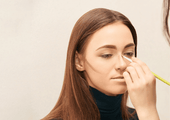
Learn How to Contour with This Simple Guide for Beginners
Want to take your makeup to the next level? Try contouring to achieve a more defined or sculpted look à la the Kardas...
-
Essential and Easy Makeup Tips for Sensitive Skin
Living with sensitive skin conditions like eczema, psoriasis, and more is already not an easy feat. Throw in makeup t...
-

Raising Your Vibration: A Liht Organics Guide for Empowerment This International Women's Day
wp:paragraph As International Women's Day (IWD) approaches, it serves as a powerful reminder of the journey towards s...
-

The Beauty of Going Bare: Why Sleeping with Makeup is a No-No
Have you ever had one of those nights where you're too tired to clean off your makeup? You might believe, "Skipping...
-

Breast Cancer Awareness: Empower Your Beauty with Liht Organics Makeup
During October, we observe Breast Cancer Awareness Month as a way to unite and bring attention to breast cancer whil...
-

The Hidden Dangers of Carmine in Makeup Colorants: Embracing Healthier and Vegan Options
Makeup has become an integral part of our daily routines, allowing us to express our unique beauty. However, as we pr...
-

How can I ensure that my makeup products are organic and won't harm my skin?
When it comes to makeup, it’s important to be mindful of what you’re putting on your skin. With so many products on t...
-
[FEATURE] HONEYCOMBERS – BEST BEAUTY BUYS IN JULY
by Nicole NithiyahWhat’s hot in our beauty hit list: Honest thoughts and top beauty stories we’re swooning over. As w...
-

Liht Organics Introduces Exclusive Gift Sets: Enhance Your Beauty This Festive Season!
As the holiday season approaches and the year draws to a close, Liht Organics is thrilled to present two enchanting g...
-

Get Spooktacular with the Best Halloween Makeup Ideas using Liht Organics' All-Natural, Vegan, and Cruelty-Free Cosmetics!
With Halloween just around the corner, it’s time to let your creativity shine and transform yourself into a spooky,...
-

Celebrating World Animal Day with Liht Organics: Embracing Natural Cruelty-Free Makeup
wp:paragraph As we observe World Animal Day, the team at Liht Organics takes great pride in honoring our pledge to...
-
Reasons Why You Should Choose Cruelty-Free Cosmetics Instead!
With increasing exposés unveiling the ugly truth behind animal testing that goes on in the beauty industry, it is lit...
-

Celebrate Singles Day with Makeup That Empowers – 22% Off at LIHT Organics!
This Singles Day, treat yourself to beauty that goes beyond skin-deep. At LIHT Organics, we believe makeup is about s...
-

Preparing for the Cozy Beauty of Autumn: A Preview of Your Fall Look
As we bid farewell to the warm, sun-kissed days of summer, it’s never too early to start dreaming about the enchantin...
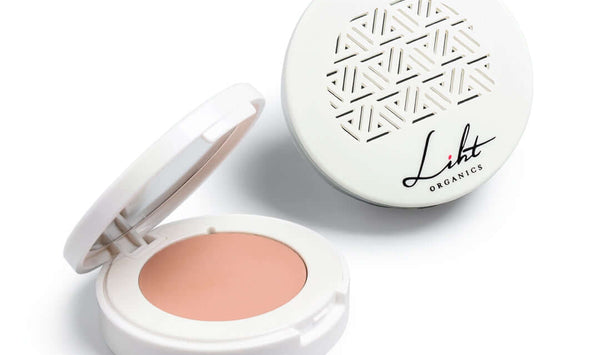
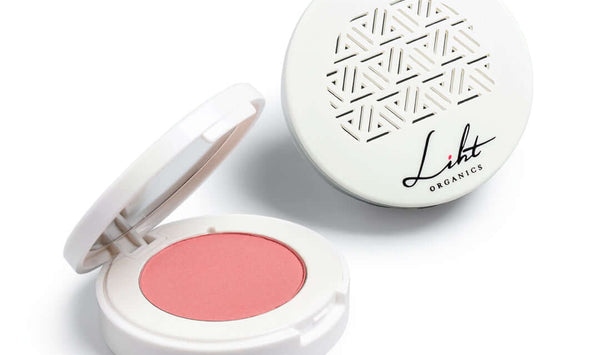
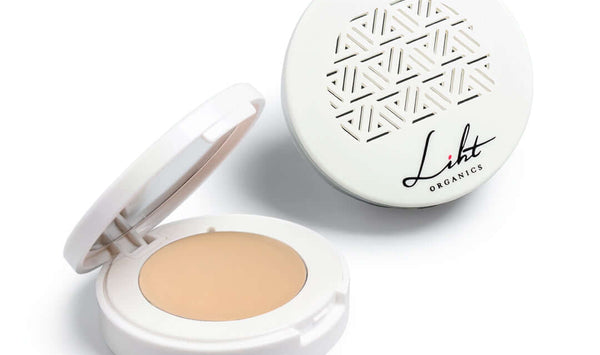
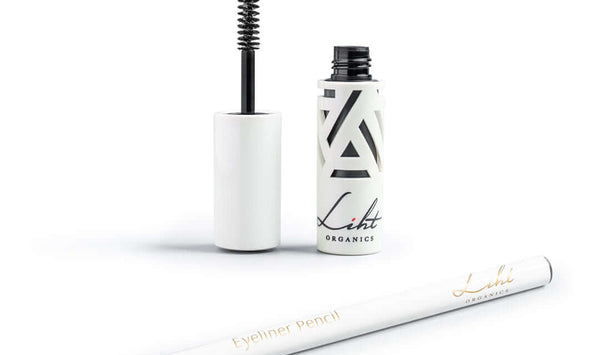
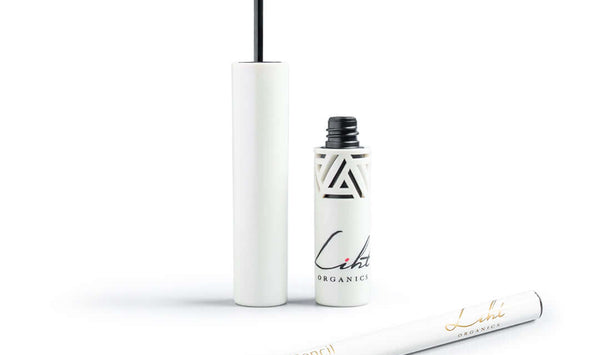
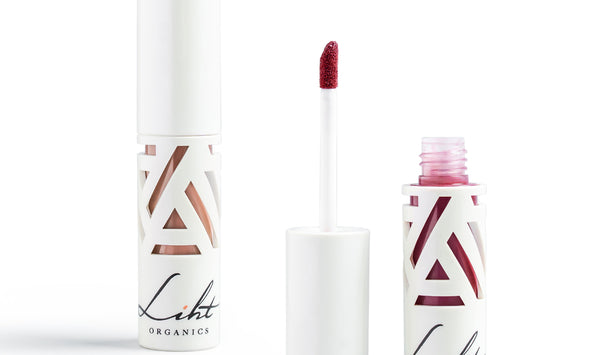
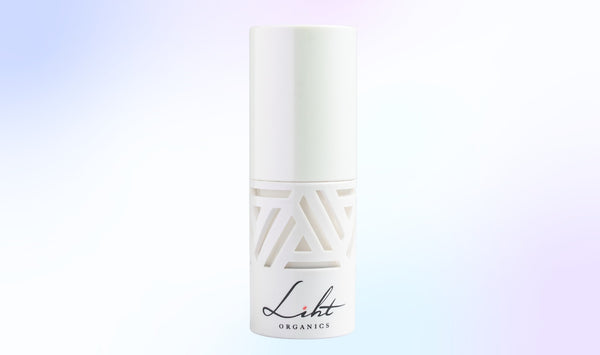

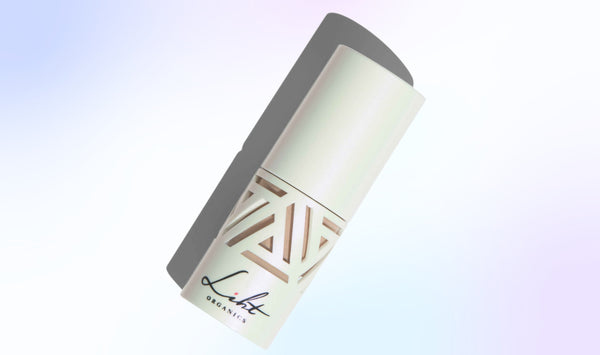

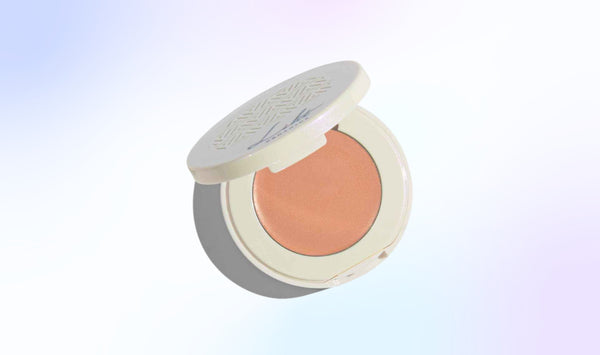
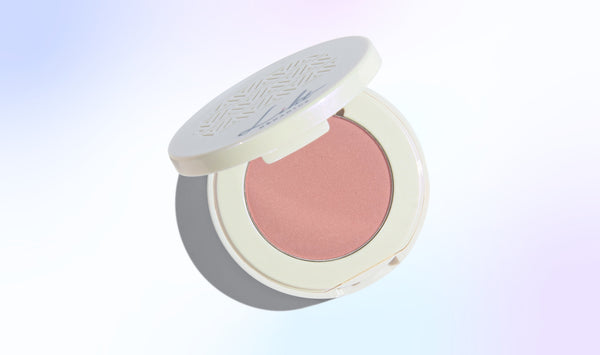
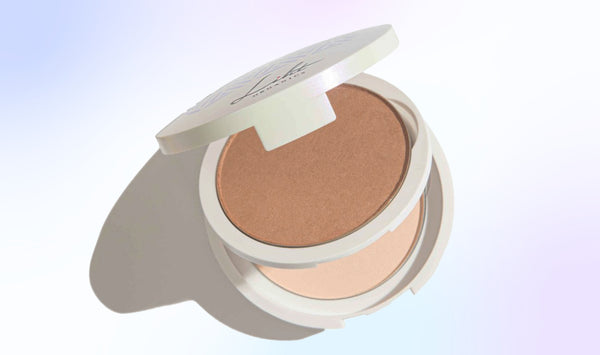
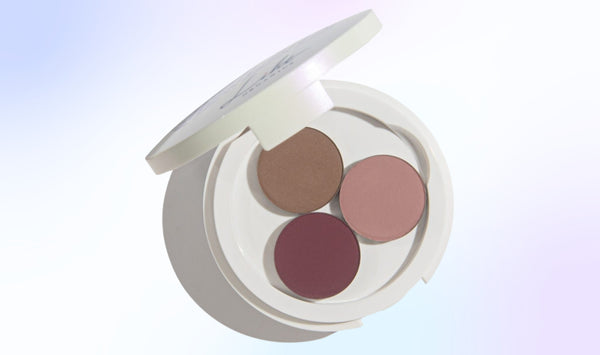
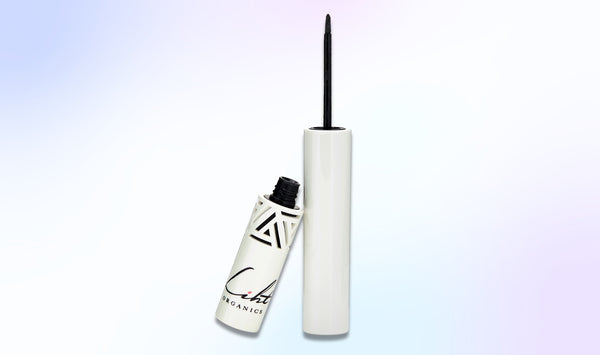
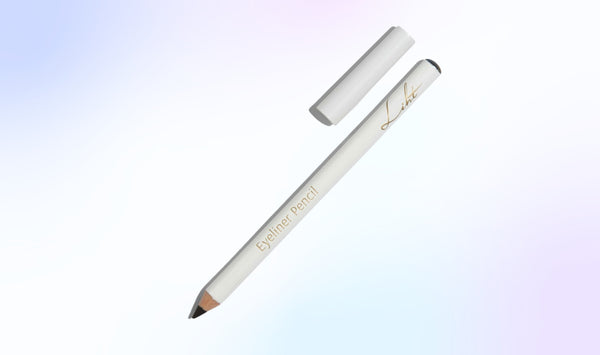
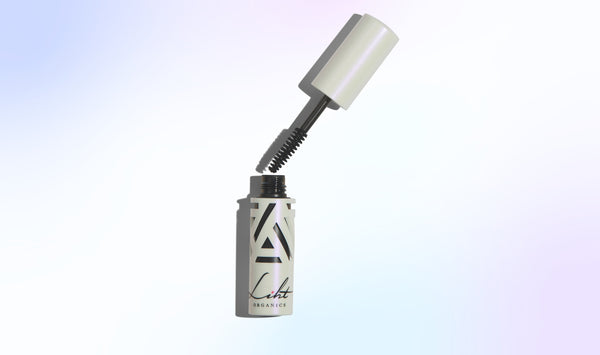
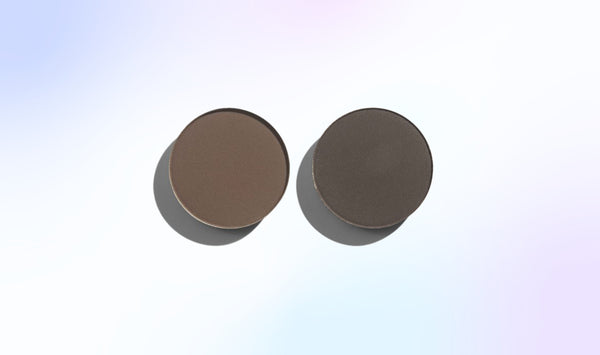
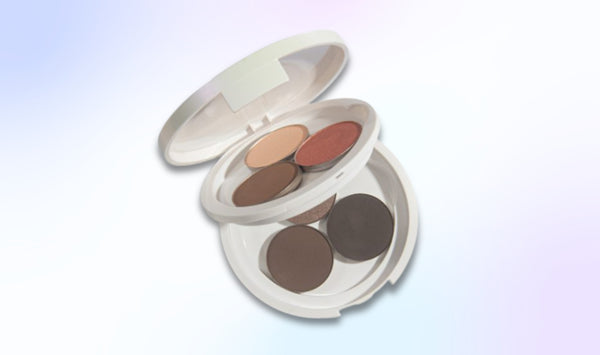
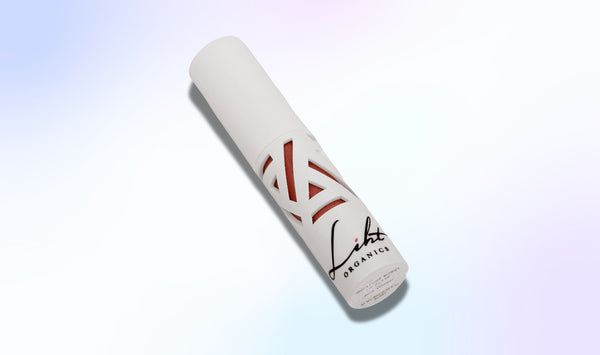
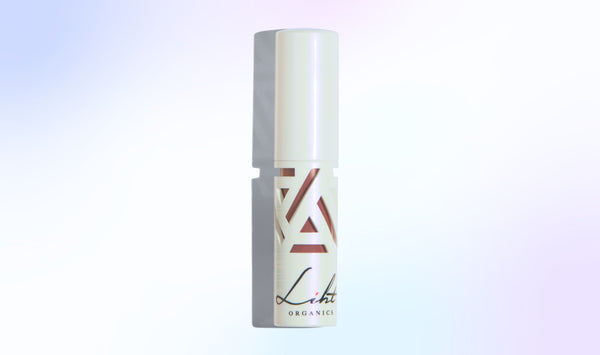
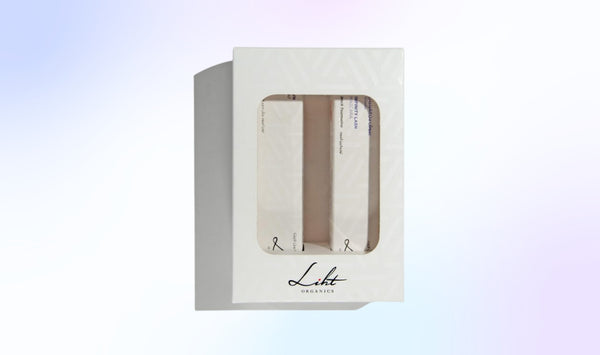
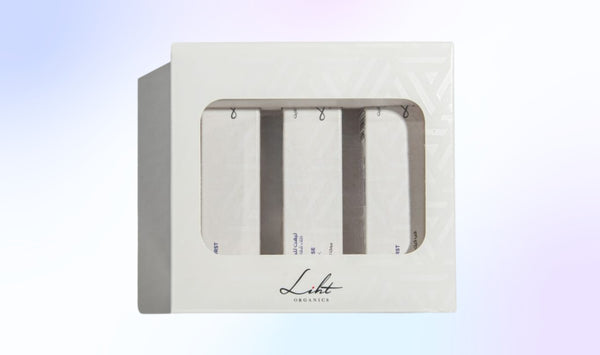


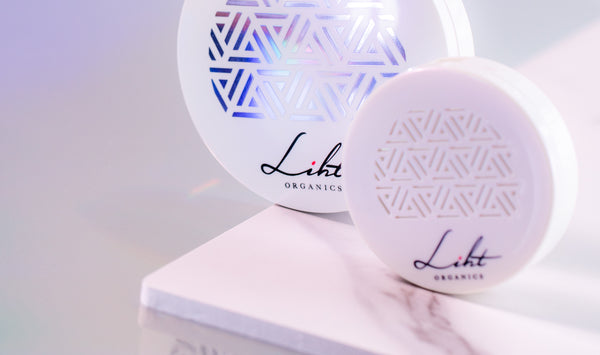
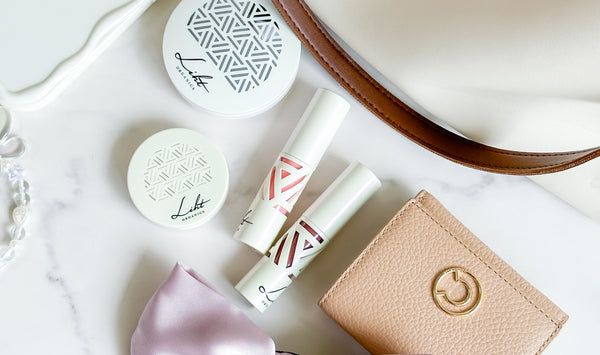
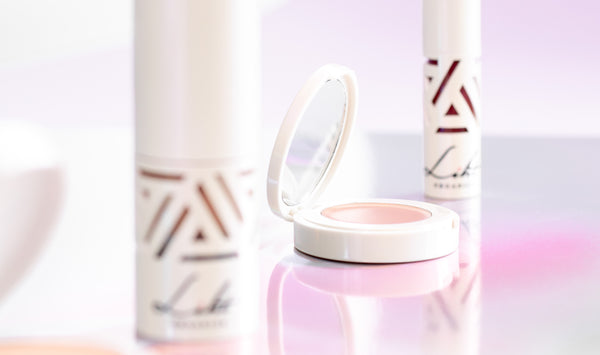




![[FEATURE] Liht Organics to debut at TFWA Asia Pacific show](http://lihtorganics.com/cdn/shop/articles/1_1.png?v=1759328400&width=170)
![[FEATURE] The Singapore-based organic makeup brand is a first-time exhibitor at this year’s TFWA Asia Pacific Exhibition in Singapore in May 2025](http://lihtorganics.com/cdn/shop/articles/2_1.png?v=1759328386&width=170)
![[FEATURE] Travel Retail Awards 2025 finalists - Best Make-up Product Color-Intense Liquid Lipstick – Liht Organics](http://lihtorganics.com/cdn/shop/articles/4_e2f54f0f-fcd1-46e7-9990-fc9d29e35131.png?v=1759328382&width=170)
![[FEATURE] Liht Organics targets expansion in travel retail](http://lihtorganics.com/cdn/shop/articles/3_1.png?v=1759328346&width=170)
































































